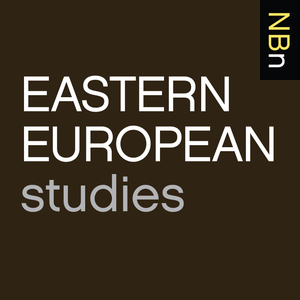
New Books in Eastern European Studies
Marshall Poe
Interviews with Scholars of Eastern Europe about their New Books
- 1 hour 37 minutesEdward Westermann, "Hitler's Ostkrieg and the Indian Wars: Comparing Genocide and Conquest" (U Oklahoma Press, 2016)
As he prepared to wage his war of annihilation on the Eastern Front, Adolf Hitler repeatedly drew parallels between the Nazi quest for Lebensraum, or living space, in Eastern Europe and the United States's westward expansion under the banner of Manifest Destiny. The peoples of Eastern Europe were, he said, his "redskins," and for his colonial fantasy of a "German East" he claimed a historical precedent in the United States's displacement and killing of the native population. Edward B. Westermann examines the validity, and value, of this claim in Hitler's Ostkrieg and the Indian Wars: Comparing Genocide and Conquest (University of Oklahoma Press, 2016).
The book takes an empirical approach that highlights areas of similarity and continuity, but also explores key distinctions and differences between these two national projects. The westward march of American empire and the Nazi conquest of the East offer clear parallels, not least that both cases fused a sense of national purpose with racial stereotypes that aided in the exclusion, expropriation, and killing of peoples. Westermann evaluates the philosophies of Manifest Destiny and Lebensraum that justified both conquests, the national and administrative policies that framed Nazi and U.S. governmental involvement in these efforts, the military strategies that supported each nation's political goals, and the role of massacre and atrocity in both processes. Important differences emerge: a goal of annihilation versus one of assimilation and acculturation; a planned military campaign versus a confused strategy of pacification and punishment; large-scale atrocity as routine versus massacre as exception.
Comparative history at its best, Westermann's assessment of these two national projects provides crucial insights into not only their rhetoric and pronouncements but also the application of policy and ideology "on the ground." His sophisticated and nuanced revelations of the similarities and dissimilarities between these two cases will inform further study of genocide, as well as our understanding of the Nazi conquest of the East and the American conquest of the West.
Learn more about your ad choices. Visit megaphone.fm/adchoices
Support our show by becoming a premium member! https://newbooksnetwork.supportingcast.fm/eastern-european-studies
29 January 2025, 9:00 am - 36 minutes 33 secondsEugene Finkel, "Intent to Destroy: Russia's Two-Hundred-Year Quest to Dominate Ukraine" (Basic Books, 2024)
Russia’s brutal invasion of Ukraine in February 2022 shocked the world. And yet, to Ukrainians, this attack was painfully familiar, the latest episode in a centuries-long Russian campaign to divide and oppress Ukraine.
In Intent to Destroy: Russia's Two-Hundred-Year Quest to Dominate Ukraine (Basic Books, 2024), political scientist Eugene Finkel uncovers these deep roots of the Russo-Ukrainian War. Ukraine is a key borderland between Russia and the West, and, following the rise of Russian nationalism in the nineteenth century, dominating Ukraine became the cornerstone of Russian policy. Russia has long used genocidal tactics—killings, deportations, starvation, and cultural destruction—to successfully crush Ukrainian efforts to chart an independent path. As Finkel shows, today’s violence is simply a more extreme version of the Kremlin’s long-standing policy. But unlike in the past, the people of Ukraine—motivated by the rise of democracy in their nation—have overcome their deep internal divisions. For the first time, they have united in favor of independence from Russia.
Whatever the outcome of the present war, Ukraine’s staunch resistance has permanently altered its relationship to Russia and the West. Intent to Destroy: Russia's Two-Hundred-Year Quest to Dominate Ukraine (Basic Books, 2024) offers the vital context we need to truly understand Europe’s bloodiest conflict since World War II.
Learn more about your ad choices. Visit megaphone.fm/adchoices
Support our show by becoming a premium member! https://newbooksnetwork.supportingcast.fm/eastern-european-studies
29 January 2025, 9:00 am - 57 minutes 52 secondsYanni Kotsonis, "The Greek Revolution and the Violent Birth of Nationalism" (Princeton UP, 2025)
Dr. Yanni Kotsonis, Professor of History and Russian & Slavic Studies at New York University, is the author of The Greek Revolution and the Violent Birth of Nationalism (Princeton University Press, 2025). This deeply researched and beautifully written history traces how something brand new – a Greek nation-state – emerged out of an Ottoman Balkan mosaic of languages, religions, and cultures. The book argues that the Greek Revolution was an event of global historical significance, ushering in an age of ethnocentric nationalism. In addition, Kotsonis' work is a major contribution to the studies of statecraft and mass violence, showcasing how new practices of mass mobilization and warfare transformed Ottomans into “Greeks” and their “Others.”
Learn more about your ad choices. Visit megaphone.fm/adchoices
Support our show by becoming a premium member! https://newbooksnetwork.supportingcast.fm/eastern-european-studies
29 January 2025, 9:00 am - 56 minutes 44 secondsPhilip Rathgeb, "How the Radical Right Has Changed Capitalism and Welfare in Europe and the USA" (Oxford UP, 2024)
Radical right parties are no longer political challengers on the fringes of party systems; they have become part of the political mainstream across the Western world. How the Radical Right Has Changed Capitalism and Welfare in Europe and the USA (Oxford UP, 2024) shows how they have used their political power to reform economic and social policies in Continental Europe, Northern Europe, Eastern Europe, and the USA. In doing so, it argues that the radical right's core ideology of nativism and authoritarianism informs their socio-economic policy preferences. However, diverse welfare state contexts mediate their socio-economic policy impacts along regime-specific lines, leading to variations of trade protectionism, economic nationalism, traditional familialism, labour market dualism, and welfare chauvinism.
The radical right has used the diverse policy instruments available within their political-economic arrangements to protect threatened labour market insiders and male breadwinners from decline, while creating a racialized and gendered precariat at the same time. This socio-economic agenda of selective status protection restores horizontal inequalities in terms of gender and ethnicity, without addressing vertical inequalities between the rich and the poor.
Combining insights from comparative politics, party politics, comparative political economy, and welfare state research, the book provides novel insights into how the radical right manufactures consent for authoritarian rule by taming the socially corrosive effects of globalised capitalism for key electoral groups, while aiming to exclude the rest from democratic participation.
Philip Rathgeb is an associate professor in Social Policy in the School of Social and Political Science at the University of Edinburgh. Previously, he was a Postdoctoral Researcher in the Department of Politics and Public Administration at the University of Konstanz. Philip holds a PhD in Political and Social Sciences from the European University Institute (EUI) and held visiting positions at Harvard University, Lund University, University of Southern Denmark, and the EUI. His research interests are in comparative political economy and comparative politics, with a particular focus on welfare states, industrial relations, and party politics. His first book Strong Governments, Precarious Workers was published with Cornell University Press in 2018.
Morteza Hajizadeh is a Ph.D. graduate in English from the University of Auckland in New Zealand. His research interests are Cultural Studies; Critical Theory; Environmental History; Medieval (Intellectual) History; Gothic Studies; 18th and 19th Century British Literature. YouTube channel. Twitter.
Learn more about your ad choices. Visit megaphone.fm/adchoices
Support our show by becoming a premium member! https://newbooksnetwork.supportingcast.fm/eastern-european-studies
28 January 2025, 9:00 am - 1 hour 4 minutesRoland Erne et al., "Politicising Commodification: European Governance and Labour Politics from the Financial Crisis to the Covid Emergency" (Cambridge UP, 2024)
Year 2008 marked the introduction of a new economic governance regime in the European Union (EU) in response to the global financial crisis. Politicising Commodification: European Governance and Labour Politics from the Financial Crisis to the Covid Emergency (Cambridge UP, 2024), authored by leading scholars in the field and also available open access, uses a approach to capture the EU formulation of prescriptions and their uneven deployment across member states (Germany, Italy, Ireland, Romania), policy areas (employment relations, public services), and sectors (transport, water, and healthcare). The regime led to a much more vertical mode of EU integration, and its commodification agenda unleashed a plethora of union and social-movement protests, including transnationally. Listen to this engaging interview with the leading author, Prof. Roland Erne, to find out what inspired this book, how the team worked together, and which conclusions they arrived at.
Learn more about your ad choices. Visit megaphone.fm/adchoices
Support our show by becoming a premium member! https://newbooksnetwork.supportingcast.fm/eastern-european-studies
28 January 2025, 9:00 am - 1 hour 32 minutesViktoriya Fedorchak, "The Russia-Ukraine War: Towards Resilient Fighting Power" (Routledge, 2024)
Viktoriya Fedorchak's The Russia-Ukraine War: Towards Resilient Fighting Power (Routledge, 2024) provides a systematic analysis of the Russian-Ukraine war, using the concept of resilient fighting power to assess the operational performance of both sides during the first year of the full-scale invasion.
The Russian war in Ukraine began in 2014 and continued for eight years, before the full-scale invasion of 24 February 2022. It is not a new war, but the intensity of the warfighting revived many discussions about the conduct of inter-state warfare, which has not been seen in Europe for decades. This book does not aim to offer an exhaustive operational analysis of the war, but rather provides a preliminary systematic analysis across various domains of warfare using the concept of fighting power to assess the operational performance of both sides. First, the book discusses the conceptual component and the post-Cold War adaptations of the Soviet strategic tradition by both the Ukrainian and the Russian Armed Forces. Following that, it gives an evaluation of the various aspects of warfighting in the land, air, maritime and cyber domains. Then, the book examines the role of international allied assistance, sanctions and weapons delivery in strengthening the resilience of the Ukrainian Armed Forces. The book concludes with some comments on the role of inter-state warfare in the current strategic environment and future warfare.
This book will be of much interest to students of military and strategic studies, defence studies, foreign policy, Russian studies and international relations.
Viktoriya Fedorchak is a lecturer in War Studies at the Swedish Defence University. She is the author of British Air Power (2018) and Understanding Contemporary Air Power (2020).
Stephen Satkiewicz is an independent scholar whose research areas are related to Civilizational Sciences, Social Complexity, Big History, Historical Sociology, military history, War studies, International Relations, Geopolitics, as well as Russian and East European history.
Learn more about your ad choices. Visit megaphone.fm/adchoices
Support our show by becoming a premium member! https://newbooksnetwork.supportingcast.fm/eastern-european-studies
28 January 2025, 9:00 am - 55 minutes 42 secondsLeon Saltiel, "The Holocaust in Thessaloniki: Reactions to the Anti-Jewish Persecution, 1942–1943" (Routledge, 2020)
The Holocaust in Thessaloniki: Reactions to the Anti-Jewish Persecution, 1942-1943 (Routledge, 2021) narrates the last days of the once prominent Jewish community of Thessaloniki, the overwhelming majority of which was transported to the Nazi death camp of Auschwitz in 1943.
Focusing on the Holocaust of the Jews of Thessaloniki, this book maps the reactions of the authorities, the Church and the civil society as events unfolded. In so doing, it seeks to answer the questions, did the Christian society of their hometown stand up to their defense and did they try to undermine or object to the Nazi orders? Utilizing new sources and interpretation schemes, this book will be a great contribution to the local efforts underway, seeking to reconcile Thessaloniki with its Jewish past and honour the victims of the Holocaust.
The first study to examine why 95 percent of the Jews of Thessaloniki perished--one of the highest percentages in Europe--this book will appeal to students and scholars of the Holocaust, European History and Jewish Studies.
Learn more about your ad choices. Visit megaphone.fm/adchoices
Support our show by becoming a premium member! https://newbooksnetwork.supportingcast.fm/eastern-european-studies
26 January 2025, 9:00 am - 1 hour 8 minutesSusan C. I. Grunewald, "From Incarceration to Repatriation: German Prisoners of War in the Soviet Union" (Cornell UP, 2024)
With From Incarceration to Repatriation: German Prisoners of War in the Soviet Union (Cornell UP, 2024), Susan Grunewald significantly enhances understandings of the fate of Germans captured by the Soviet Union during World War II. Her archival research demonstrates that the Soviets saw the German prisoners of war as a source of labor at a time when the Soviet Union urgently needed to rebuild and lacked manpower after its enormous war losses. Numerous Soviet enterprises, operating under dozens of ministries, used POWs contracted out by prison camp officials. Grunewald argues that the mistreatment of German POWs and their high death rates were the consequence not of retribution but of negligence, lack of coordination, and severe shortages, especially during the famine that followed the war. Those too weak to work were often repatriated. POWs were also subjected to intense antifascist reeducation so that once home, they would help win support among Germans for the Soviet Union; many former prisoners filled leadership roles in East Germany after the establishment of two German states in 1949. The last POWs returned to Germany in early 1956.
Learn more about your ad choices. Visit megaphone.fm/adchoices
Support our show by becoming a premium member! https://newbooksnetwork.supportingcast.fm/eastern-european-studies
26 January 2025, 9:00 am - 1 hour 24 minutesAnthony McElligott, "The Last Transport: The Holocaust in the Eastern Aegean" (Bloomsbury, 2024)
Today I talked to Anthony McElligott about The Last Transport: The Holocaust in the Eastern Aegean (Bloomsbury, 2024).
The deportation of 1,755 Jews from the islands of Rhodes and Cos in July 1944, shortly after the last deportation from Hungary, was the last transport to leave Greece for Auschwitz and brought to a close the last significant phase of the genocide of Europe's Jews (notwithstanding the death marches). Within six weeks of their deportation, the Germans were retreating from Greece and the Balkans as Hitler's empire shrank. This last deportation is frequently acknowledged in Holocaust literature but its significance for our understanding of the Nazi genocide of the Jews remains largely overlooked. The timing of the transport, when it was clear to the German military elite that Nazi Germany had lost the war, raises important questions in relation to long-term ideological Nazi goals and the immediate contingency thrown up by war.
Anthony McElligott, in this account of the last Greek transport of Jews to Auschwitz, tells a compelling story of this previously underexplored event and sheds light on an important aspect of the Holocaust through an in-depth study of one Eastern Mediterranean community.
Roberto Mazza is currently a visiting scholar at the Buffett Institute for Global Affairs at Northwestern University. He is the host of the Jerusalem Unplugged Podcast and to discuss and propose a book for interview can be reached at [email protected]. Twitter and IG: @robbyref Website: www.robertomazza.org
Learn more about your ad choices. Visit megaphone.fm/adchoices
Support our show by becoming a premium member! https://newbooksnetwork.supportingcast.fm/eastern-european-studies
21 January 2025, 5:00 am - 1 hour 40 minutesValentina N. Glajar, "The Secret Police Dossier of Herta Müller: A "File Story" of Cold War Surveillance" (Camden House, 2023)
"Herta Müller should share her Nobel with the Securitate." This comment by a former officer in the Romanian secret police, or Securitate, was in reaction to hearing that Müller, a German writer originally from Romania, had won the 2009 Nobel Prize for Literature. Communist Romania's infamous secret police was indeed a protagonist in Müller's work, though an undesired and dreaded one: most of her writings are deeply and explicitly anchored in Ceaușescu's Romania and her own traumatic experiences with the Securitate. Müller's file traces her surveillance from 1983 until after she emigrated to West Germany in 1987. She has written extensively in reaction to reading her file, but primarily addresses its gaps, begging the question what information the file does in fact contain.
The Secret Police Dossier of Herta Müller: A "File Story" of Cold War Surveillance (Camden House, 2023) is an in-depth investigation of Müller's file, and engages with other related files, including that of her then-husband, the writer Richard Wagner. Valentina Glajar treats the files as primary sources in order to re-create the story of Müller's surveillance by the Securitate. In such an intrusive culture of surveillance, surviving the system often meant a certain degree of entanglement: for victims, collaborators, and implicated subjects alike. Veiled in secrecy for decades, these compelling and complex documents shed light on a boundary between victims and perpetrators as porous as the Iron Curtain itself.
Learn more about your ad choices. Visit megaphone.fm/adchoices
Support our show by becoming a premium member! https://newbooksnetwork.supportingcast.fm/eastern-european-studies
17 January 2025, 9:00 am - 45 minutes 14 secondsIsaac Stanley-Becker, "Europe Without Borders: A History" (Princeton UP, 2025)
Forty years ago, Schengen - a wine-making village at the tripoint border of Luxembourg, France, and Germany - made European history when diplomats from these countries, Belgium, and the Netherlands struck a deal to scale back their mutual border checks.
"The event at Schengen went unnoticed by much of the European press," writes Isaac Stanley-Becker in Europe Without Borders: A History (Princeton University Press, 2025). Yet, as one of its signatories said much later, the Schengen agreement "changed everything" - accelerating the development of the European single market and currency area.
Today, however, Schengen is under threat as its now-29 members struggle to balance the free movement of people against the demands of cross-border policing, immigration control, and political consent. In September 2024, the German government - rattled by surging support for the nativist AFD in the run-up to a federal election - reinstated border controls with its four Schengen founders, prompting threats of retaliation. Could Schengen face, as Stanley-Becker warns, "death by a thousand cuts"?
Isaac Stanley-Becker is an investigative reporter at the Washington Post - part of the team that won a Pulitzer Prize in 2024 for a series exploring the role of the AR-15 semi-automatic rifle in American life. A graduate of Yale, he went on to complete a PhD in History at Oxford in 2019. Europe Without Borders is his first book.
*The author's book recommendations were East West Street: On The Origins of Genocide and Crimes Against Humanity by Philippe Sands (Weidenfeld & Nicolson, 2016) and The Man Who Saw Everything by Deborah Levy (Hamish Hamilton, 2019).
Tim Gwynn Jones is an economic and political risk analyst at Medley Advisors, who also writes and podcasts on Substack at 242.news.
Learn more about your ad choices. Visit megaphone.fm/adchoices
Support our show by becoming a premium member! https://newbooksnetwork.supportingcast.fm/eastern-european-studies
14 January 2025, 9:00 am - More Episodes? Get the App
Your feedback is valuable to us. Should you encounter any bugs, glitches, lack of functionality or other problems, please email us on [email protected] or join Moon.FM Telegram Group where you can talk directly to the dev team who are happy to answer any queries.
 New Books in History
New Books in History
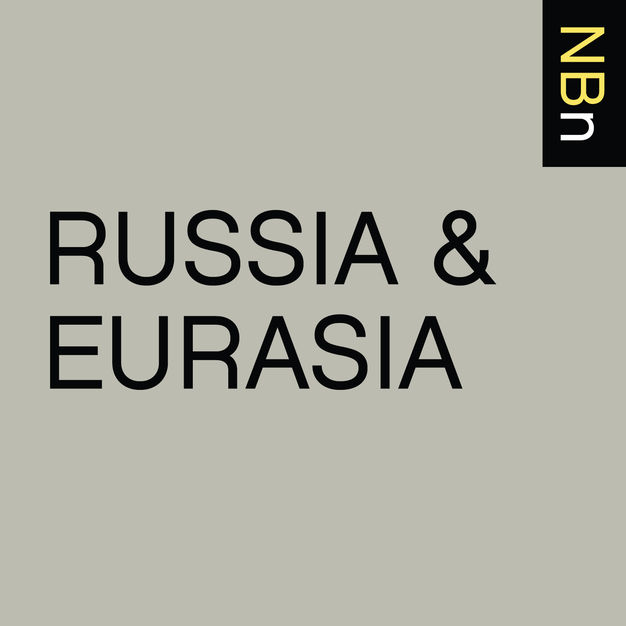 New Books in Russian and Eurasian Studies
New Books in Russian and Eurasian Studies
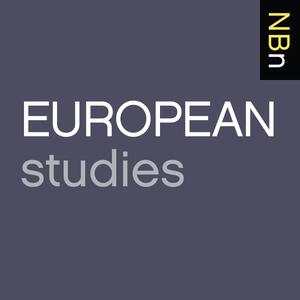 New Books in European Studies
New Books in European Studies
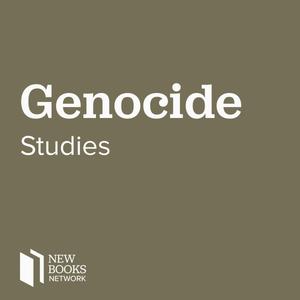 New Books in Genocide Studies
New Books in Genocide Studies
 New Books in Intellectual History
New Books in Intellectual History
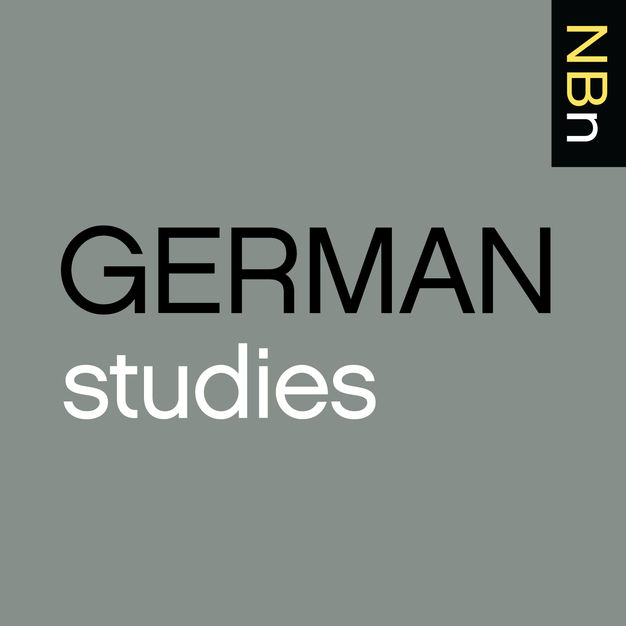 New Books in German Studies
New Books in German Studies